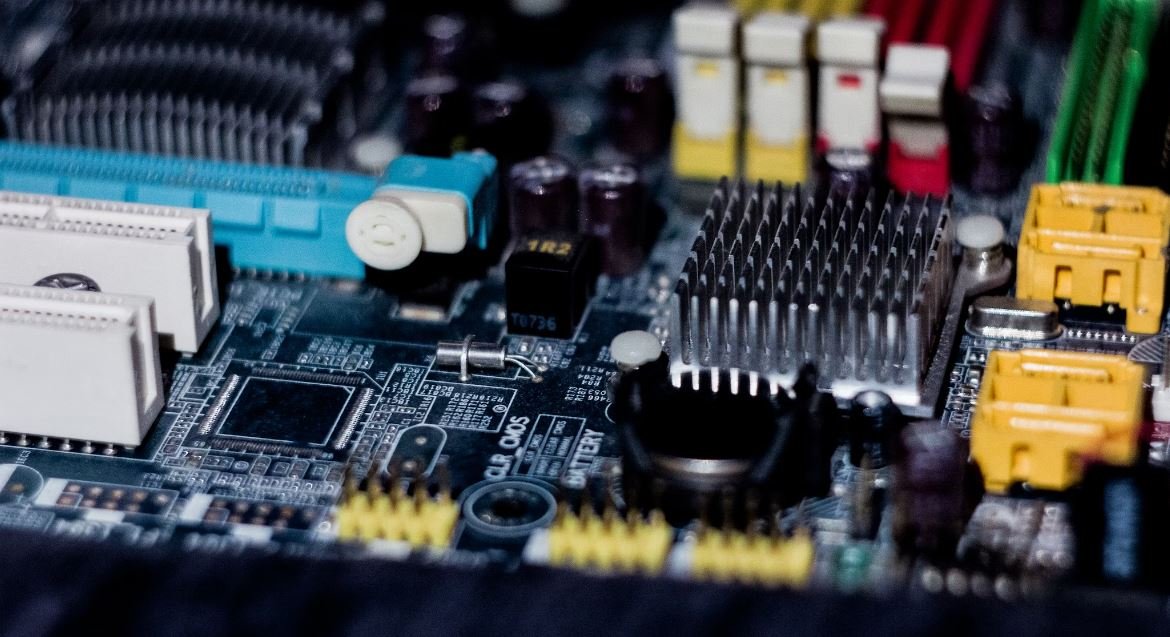Machine Learning Zurich
Machine Learning in Zurich has gained momentum in recent years, with its rapidly growing technology industry and focus on innovation. This article explores the exciting developments in the field of machine learning in Zurich, highlighting the key companies, research institutions, and initiatives contributing to its success.
Key Takeaways:
- Zurich has become a hub for machine learning, with notable companies and research institutions at the forefront of innovation.
- Machine learning in Zurich encompasses a wide range of applications, from finance and healthcare to robotics and self-driving cars.
- The collaboration between academia and industry has created a dynamic ecosystem that fosters innovation and knowledge exchange.
- Zurich offers excellent opportunities for networking, learning, and career development in the field of machine learning.
One of the key players in the machine learning scene in Zurich is Google Research, which has established its Zurich office as a central hub for machine learning and artificial intelligence projects. The interdisciplinary Swiss Data Science Center is also making waves in Zurich, bringing together researchers from ETH Zurich and EPFL in collaboration with industrial partners to tackle data-driven challenges.
| Company/Institution | Key Contribution |
|---|---|
| Google Research Zurich | Leading research and development in machine learning and AI. |
| Swiss Data Science Center | Collaborative research efforts in data-driven challenges. |
| IBM Research Zurich | Exploring and applying machine learning techniques in various domains. |
Another prominent institution in Zurich dedicated to machine learning is the Swiss Federal Institute of Technology (ETH Zurich). Researchers at ETH Zurich are actively involved in cutting-edge machine learning research, with focus areas such as deep learning, reinforcement learning, and natural language processing. The institute offers comprehensive machine learning courses, equipping students with the necessary knowledge and tools to excel in this field.
Machine learning algorithms are designed to uncover patterns and insights from complex datasets, enabling computers to learn and make predictions automatically. This technology has found applications in various industries, from finance and healthcare to robotics and autonomous vehicles. In finance, machine learning algorithms help analyze vast amounts of financial data to make informed investment decisions. In healthcare, machine learning aids in diagnosing diseases, predicting patient outcomes, and identifying personalized treatment plans.
| Industry | Applications |
|---|---|
| Finance | Financial analysis and investment decision-making. |
| Healthcare | Disease diagnosis, patient outcome prediction, personalized treatment. |
| Robotics | Object recognition, navigation, and automation. |
| Autonomous Vehicles | Self-driving cars and advanced driver-assistance systems. |
Zurich’s thriving machine learning community is further supported by notable initiatives such as the Zurich Machine Learning Meetup, where professionals gather to share knowledge, discuss advancements, and network with like-minded individuals. Additionally, Zurich.AI serves as a platform for showcasing and promoting machine learning projects, fostering collaboration among enthusiasts in the field.
Machine learning continues to evolve rapidly, pushing the boundaries of what is possible in various domains. The contributions made by the machine learning community in Zurich have paved the way for advancements in AI and have significant implications for industries worldwide. As technology and research continue to progress, Zurich remains a key hub for machine learning innovation, offering exciting opportunities for those passionate about the field.
Key Impacts of Machine Learning in Zurich:
- Advancements in finance, healthcare, robotics, and autonomous vehicles.
- Collaboration between industry and academia drives innovation and knowledge exchange.
- Opportunities for networking, learning, and career development in machine learning.
Machine learning in Zurich has seen remarkable growth in recent years, with companies and institutions at the forefront of groundbreaking research and innovation. Zurich continues to prove itself as a leading hub for machine learning, creating a vibrant community for enthusiasts, professionals, and learners alike.

Common Misconceptions
Machine Learning is the same as Artificial Intelligence
- Machine learning is a subfield of AI, but not all AI techniques use machine learning.
- Machine learning focuses on algorithms that enable computers to learn and make predictions or take actions based on data.
- AI encompasses a broader range of techniques and goals, including expert systems, natural language processing, and robotics.
All machine learning algorithms are black boxes
- While some complex algorithms may be difficult to interpret, not all machine learning algorithms are black boxes.
- Some algorithms, such as linear regression or decision trees, can provide transparent explanations.
- Machine learning interpretability techniques are being developed to make complex models more understandable.
Machine Learning can solve any problem
- While machine learning is a powerful tool, it is not a silver bullet for all problems.
- Some problems may not have enough relevant data to train a reliable model.
- Other problems may involve complex interactions that cannot be effectively captured by a machine learning model.
Machines can learn on their own without human intervention
- Although machine learning algorithms can learn from data, they require human intervention at various stages.
- Human experts are needed to preprocess and clean the data for machine learning algorithms.
- Human supervision is also necessary to train models, validate their performance, and make informed decisions.
Machine Learning is always biased
- Machine learning models are as biased as the data they are trained on.
- If the training data is biased, the model will likely reproduce and amplify those biases.
- However, research and practices around fairness and bias mitigation are actively being developed in the field of machine learning.

Top 10 Machine Learning Startups in Zurich
Machine learning has emerged as a leading technology, revolutionizing various industries. Zurich, often referred to as the “Silicon Valley of Europe,” is home to several exciting machine learning startups. These companies are leveraging cutting-edge algorithms and data analysis techniques to drive innovation in diverse sectors. Below, we highlight the top 10 machine learning startups in Zurich and the areas they specialize in.
1. FoodAI
FoodAI harnesses machine learning to improve the food industry. They have developed a sophisticated algorithm that can accurately predict the freshness of fruits and vegetables, reducing food waste and optimizing supply chains.
2. HealthBoost
HealthBoost uses machine learning to provide personalized healthcare recommendations. Their platform analyzes vast amounts of medical data, including patient records and genetic information, to generate personalized treatment plans.
3. CitySense
CitySense focuses on enhancing urban planning using machine learning. Their algorithm analyzes data from sensors strategically placed throughout the city to optimize traffic flow, reduce congestion, and improve the overall urban experience.
4. FinanceX
FinanceX utilizes machine learning to enhance financial decision-making. They have developed an intelligent algorithm that predicts stock market trends with remarkable accuracy, empowering investors to make data-driven choices.
5. RoboGuard
RoboGuard pioneers in autonomous security solutions. Leveraging machine learning, their robots are trained to detect and respond to potential threats in real-time, providing enhanced security services for various industries.
6. AgroSense
AgroSense revolutionizes agriculture with machine learning. By analyzing soil composition, weather patterns, and plant health data, their platform optimizes irrigation and fertilizer use, resulting in higher crop yields and increased sustainability.
7. EduMind
EduMind makes machine learning accessible to education. Their platform uses algorithms to analyze student performance and individual learning styles, providing personalized recommendations to optimize the educational experience.
8. TransLingua
TransLingua breaks language barriers with machine learning. Their translation software employs advanced algorithms to provide accurate and efficient translations in real-time, bridging communication gaps across diverse languages.
9. SmartHomeTech
SmartHomeTech enhances domestic living through machine learning. Their system learns user preferences and adjusts various aspects of the home, including lighting, temperature, and security, for optimal comfort and convenience.
10. TravelSense
TravelSense leverages machine learning to provide personalized travel recommendations. By analyzing user preferences and historical data, their platform offers tailored itineraries, ensuring an unforgettable travel experience.
In summary, Zurich is a hub of innovation in the machine learning field. These top 10 startups exemplify how machine learning can transform industries such as food, healthcare, urban planning, finance, security, agriculture, education, language translation, home automation, and travel. As technology continues to advance, the possibilities for machine learning are limitless, opening doors to a future where data-driven decision-making becomes the norm.
Frequently Asked Questions
What is machine learning?
Machine learning is a branch of artificial intelligence that focuses on developing algorithms and statistical models that enable computers to learn and make predictions or decisions without being explicitly programmed. It enables systems to automatically analyze and interpret complex data and improve their performance through experience.
How does machine learning work?
Machine learning algorithms work by training a model on a large dataset, which contains both inputs and output data. During training, the model learns patterns, relationships, and correlations within the data, allowing it to make predictions or decisions on new, unseen data.
What are the different types of machine learning?
There are several types of machine learning, including supervised learning, unsupervised learning, semi-supervised learning, and reinforcement learning. In supervised learning, the model learns from labeled data. Unsupervised learning involves learning from unlabeled data. Semi-supervised learning combines both labeled and unlabeled data, while reinforcement learning involves learning through feedback and rewards.
How is machine learning utilized in Zurich?
Machine learning is being applied in various domains in Zurich, including finance, healthcare, transportation, and manufacturing. In finance, machine learning algorithms are used for risk assessment, fraud detection, and portfolio management. In healthcare, it is used for disease diagnosis, drug discovery, and personalized medicine. In transportation, machine learning enables autonomous vehicles and traffic optimization. In manufacturing, it is used for quality control, predictive maintenance, and supply chain optimization.
What are the benefits of machine learning?
Machine learning offers several benefits, such as improved accuracy and efficiency in decision-making, automation of repetitive tasks, ability to handle large and complex datasets, personalized recommendations and experiences, fraud detection, optimization of processes and resources, and enhancement of scientific research and discoveries.
What are the challenges of machine learning?
While machine learning has numerous advantages, it also faces challenges. These include the need for high-quality and labeled training data, interpretability and explainability of models, potential biases and discrimination, ethical considerations, data privacy and security risks, computational power requirements, and the constant need for updating and retraining models to adapt to new scenarios.
What skills are required to work in machine learning?
Working in machine learning requires a combination of skills. These include knowledge of mathematics and statistics, programming skills, understanding of algorithms and data structures, familiarity with machine learning frameworks and libraries, ability to preprocess and analyze data, expertise in feature engineering and selection, and strong problem-solving and critical thinking abilities. Domain knowledge in the specific application area is also beneficial.
What is the future of machine learning in Zurich?
The future of machine learning in Zurich looks promising. With the advancement of technologies like deep learning, neural networks, and natural language processing, machine learning will continue to play a crucial role in solving complex problems and driving innovation across various industries. The demand for machine learning professionals is expected to grow, and Zurich will likely witness more advancements in areas like healthcare, finance, robotics, and smart cities.
Are there any regulatory frameworks for machine learning in Zurich?
Currently, there is no specific regulatory framework exclusively for machine learning in Zurich. However, existing data protection and privacy laws, such as the Swiss Data Protection Act and the EU General Data Protection Regulation (GDPR), apply to machine learning applications. Organizations working with machine learning technologies are expected to ensure compliance with these laws and maintain ethical practices for data usage and handling.
How can I learn machine learning in Zurich?
There are several avenues to learn machine learning in Zurich. You can enroll in university courses or programs that offer specialization in artificial intelligence and machine learning. Many online platforms and MOOCs (Massive Open Online Courses) provide comprehensive machine learning courses, tutorials, and hands-on projects. Additionally, participating in machine learning competitions and joining local meetups and communities can help you gain practical knowledge and connect with experts in the field.




